391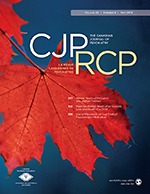
Mar 7, 2019
Centre
for Suicide Prevention, Canada
This Canadian resource offers up to date evidence-based advice on preventing suicide in transgender people.
https://www.suicideinfo.ca/wp-content/uploads/2018/12/CSP_Toolkit_Transgender_web.pdf
392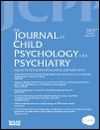
Mar 7, 2019
Dunning DL, Griffiths K, Kuyken W, et al.
J Child Psychol Psychiatry. First published 22 October 2018. https://doi.org/10.1111/jcpp.12980
As the evidence for mindfulness-based therapies increases, this review of 33 studies conducted before October 2017 demonstrates that these interventions can improve measures of mindfulness, anxiety and depression with small effect sizes (i.e. a positive, but modest effect).
https://onlinelibrary.wiley.com/doi/10.1111/jcpp.12980
393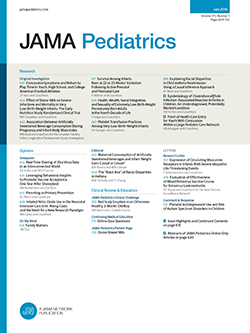
Feb 13, 2019
Madigan S, Browne D, Racine N, Mori C, Tough S.
JAMA Pediatr. Published online January 28, 2019.
doi:10.1001/jamapediatrics.2018.5056
This study demonstrates that higher levels
of screen time at 24 and 36 months are significantly associated with poorer
performance on developmental screening tests at 36 months.
https://jamanetwork.com/journals/jamapediatrics/article-abstract/2722666?guestAccessKey=82c43002-a836-45fc-bed4-e8331a06352d&utm_source=silverchair&utm_medium=ema...
394
Feb 13, 2019
Dawson G, Sapiro G. JAMA Pediatr. Published
online February 04, 2019. doi:10.1001/jamapediatrics.2018.5269
Times are changing. This article summarises the role of digital
technologies for the detection and diagnosis of Autism Spectrum Disorder
(ASD). Multiiple, precise behavioural
measurement in a child’s natural environment may see more early and accurate
identification of children with ASD.
https://jamanetwork.com/journals/jamapediatrics/fullarticle/2723528?guestAcces...
395
Feb 13, 2019
Maybery, D., Goodyear, M., Reupert, A., Sheen, J., Cann, W., O’Hanlon, B., & Cuff, R. (2019). Clinical Child Psychology and Psychiatry. https://doi.org/10.1177/1359104518822676
This
study provides some preliminary evidence for the effectivenss of an intervention
called Let’s Talk About Children. Both
the treatment and control groups showed improvement in insight and family communication,
suggesting that even basic psychoeducation (in the control group) may be useful
for familie...
396
Feb 13, 2019
Golding P, Fitzgerald HE. Infant Ment Health J. 2019;40:5–22. https://doi.org/10.1002/imhj.21753
This article summarises the evidence related to contemporary
theories regarding the origins of violence in males. An interesting read for those interested in
conduct problems and those working in the youth forensic space.
https://onlinelibrary.wiley.com/doi/10.1002/imhj.21753
397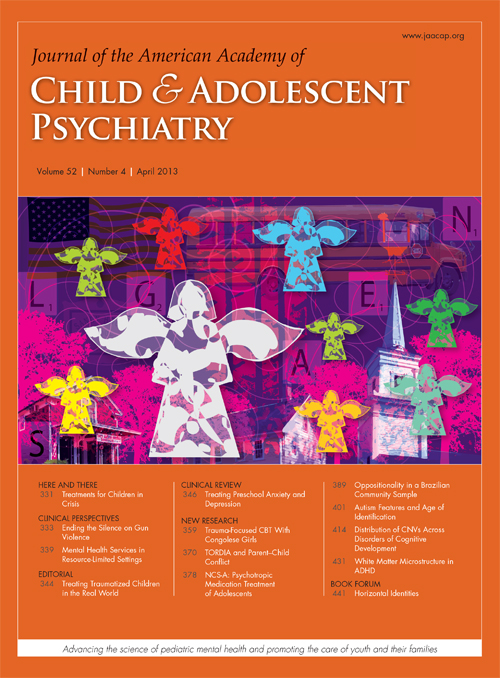
Feb 13, 2019
Silk, Jennifer S. et al. Journal of the American Academy of
Child & Adolescent Psychiatry , Published online February 2019
This longitudinal study demonstrates that anxious children are
more prone to later depression and that treatment of anxiety during childhood
using Cognitive Behaviour Therapy (CBT) can reduce the likelihood of later
depression.
https://www.jaacap.org/article/S0890-8567(19)30040-1/fulltext
398
Feb 13, 2019
Disher T, Gullickson C, Singh B, et al. JAMA Pediatr. Published online January 22, 2019.
doi:10.1001/jamapediatrics.2018.5044
This systematic review identifies Buprenorphine
as being the most usueful treatment for neonatal abstinence syndrome.
https://jamanetwork.com/journals/jamapediatrics/article-abstract/2721247?guestAccessKey=46e1efdd-c3b5-4f2c-9ea0-89a42b0c8ef3&utm_source=silverchair&utm_medium=email&utm_campaign=article_alert-jamapediatrics&utm_content=ol...
399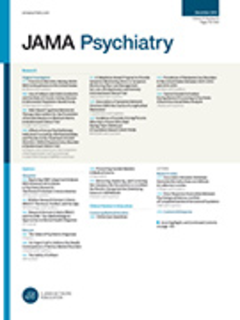
Feb 13, 2019
Lees D, Frampton CM, Merry SN. JAMA
Psychiatry. Published online January 23, 2019.
doi:10.1001/jamapsychiatry.2018.4183
High risk families are at greater risk of
having children with behavioural difficulties and often drop out of parent
management programmes. This NZ study demonstrates
that a modification of standard treatment using a home visiting enhancement can
increase parent retention and child behaviour.
https://jamanetwork.com/journals/jamapsychiatry/article-abstract/272...
400
Feb 13, 2019
Jangmo, Andreas et al. Journal of the American
Academy of Child & Adolescent Psychiatry , Published online Feb 2019
Despite
the concern of many parents about the effects of stimulant medication on their
childrens’ brains, this large (657,000) Swedish
study demonstrates that ADHD is associated with significantly worse school
performance while stimulant treatment is associated with improved school
performance.
https://www.jaacap.org/article/S0890-8567(19)30059-0/fulltext








